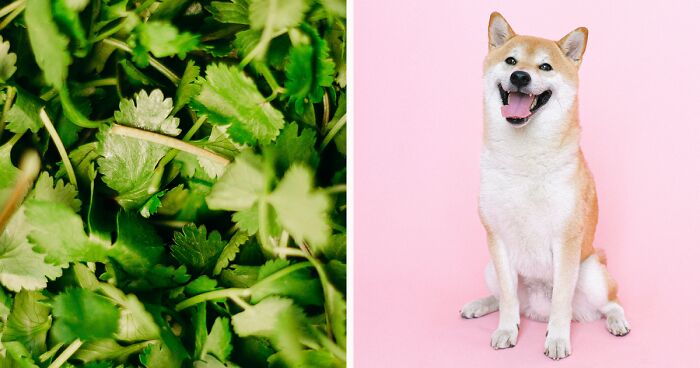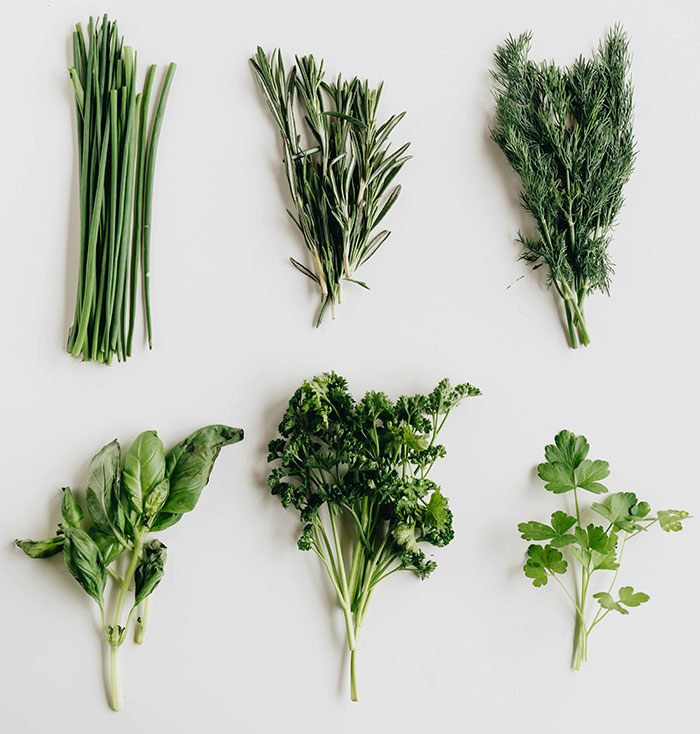Dog owners often show affection to their furry friends, cheering them up by offering delicious food other than the routine dog food. While we may be tempted to share our meals with our canine companions, it’s essential to be mindful of certain foods and spices that can be toxic to dogs. In this article, we will explore the topic of spices that are safe and those that should be avoided when it comes to feeding your pooch.
- Spices that are safe for dogs include parsley, turmeric, basil, black pepper, cinnamon, and ginger.
- Avoid nutmeg, garlic, onion, and cocoa powder for dogs.
- Use spices in moderation to prevent stomach upset.
- Always consult a vet before adding spices to dog diets.
We’ll provide you with a comprehensive guide on what spices dogs can eat and what to avoid to ensure their well-being keeping them healthy and meanwhile adding a bit of safe spice in their life.
The information provided herein is for informational purposes only. Please refer to our disclaimer for more details..
What are the healthiest herbs and spices for Dogs?
Image credit: alleksana
When it comes to enhancing your dog’s food with herbs and spices, there are several options that are safe and even beneficial for their health. Here are some of the safe herbs and spices you can incorporate into your dog’s diet:
Parsley – Rich in vitamins and antioxidants, prevents bad breath. Finely chop and add to your dog’s food.
Turmeric – Anti-inflammatory, antioxidant, helps with joint pain. Add a small amount to your dog’s food or make turmeric paste.
Basil – Rich in antioxidants, anti-inflammatory, antibacterial. Finely chop and add to your dog’s food or make basil oil.
Peppermint – Has soothing properties to help upset stomach, reduce gas buildup and nausea. Grind or chop fresh peppermint leaves and add 1/2 to 1 teaspoon in dog’s diet.
Cinnamon – Antioxidant, anti-inflammatory, anti-fungal also regulates blood sugar. Add a small amount to your dog’s food or sprinkle on top of a treat.
Ginger – Anti-inflammatory, aids digestion, helps with nausea. Grate fresh ginger and add a small amount to your dog’s food or make ginger tea.
Rosemary – A natural herb that is a great addition to your pup’s diet, is high in Calcium, Iron and Vitamin B6, can promote the growth of bones and can help prevent anemia and rickets in young puppies. Moreover, it has antioxidant properties and can act as a natural flea repellent.
Coriander – Another great addition, in small amounts can help prevent nausea, indigestion and relieve diarrhea, an excellent detox. A rich source of Vitamin A, C, zinc and potassium, avoid giving to pregnant dogs because it can induce contractions.
All of these herbs and spices are safe and healthy for your dog when used in moderation and in appropriate amounts. They can be added to your dog’s food as a tasty and nutritious supplement, however, always be mindful of some herbs and spices that can be harmful for your dog, therefore consult a Veterinarian before introducing any new seasoning to your dog. Some dogs are allergic to a particular spice and can have symptoms like skin irritation or sneezing.
Spices to Avoid giving your dog:
Image credit: Engin Akyurt
If you’re a pet owner, you know how important it is to ensure your furry friend stays healthy and happy. While certain herbs and spices can be beneficial for your dog’s health, others can be toxic and lead to serious health issues. In this section, we’ll discuss list of herbs and spices that are harmful to your dog and should be avoided.
Nutmeg
Nutmeg is a popular spice that adds warmth and flavor to a variety of dishes but nutmeg can cause serious health issues for dogs. However, it’s important to keep in mind that nutmeg can be toxic to dogs and can cause serious health issues. Nutmeg contains myristicin, a compound that can cause hallucinations, disorientation, increased heart rate, and even seizures in dogs. It’s best to avoid giving your dog any food that contains nutmeg to prevent potential health complications.
Garlic
While garlic is a common ingredient in many human foods, it’s harmful to dogs and should be avoided. Garlic contains compounds like N-propyl disulfide that can cause damage to the hemoglobin (oxygen binding protein) in red blood cells of dogs, leading to anemia and other serious health issues.
Symptoms of garlic toxicity in dogs include, vomiting, diarrhea, lethargy, pale gums, and an elevated heart rate. If you suspect your dog has ingested garlic, seek veterinary care immediately.
Onion
Onions, like garlic, are harmful to dogs and can cause damage to red blood cells. The compounds in onions (thiosulphate) can cause anemia, which can lead to weakness, fatigue, and difficulty breathing. It’s best to avoid giving your dog any food that contains onions, including onion powder and cooked or raw onions.
Chives
Can cause stomach upset leading to diarrhea and vomiting. In large toxic amounts Japanese Chives like Japanese Akita can cause hemolysis of red blood cells.
Cocoa Powder:
Not specifically considered a spice, Cocoa powder is more of a flavoring agent but is toxic for dogs because it contains a compound called theobromine that can prove to be highly toxic for dogs in even small doses of 20mg/kg. Symptoms of toxicity includes the following: Vomiting, diarrhea, tachycardia( rapid heart rate), polyurea (frequent urination) and Central nervous system impairment like seizures, incoordination etc.
By being aware of the potential risks and keeping your dog’s diet free of harmful spices, you can help ensure their health and well-being.
Using Spices for dogs in Moderation
While spices can be a great addition to your dog’s diet, it’s essential to use them in moderation. Giving your dog too much of a spice can lead to an upset stomach, causing vomiting and diarrhea. It’s important to introduce spices slowly, allowing your dog’s digestive system to adjust. Start by adding small amounts of spices to their food and gradually increase the quantity over time.
Adding herbs and spices to your dog’s meals can provide health benefits, but it’s crucial to use them in moderation and under the guidance of a veterinarian. They can help you determine the appropriate amount of spices to add to your dog’s diet based on their weight, age, and health condition.
What spices are good for dogs with inflammation?
Turmeric:
Turmeric has a natural anti-inflammatory effect due to the presence of a compound called curcumin, which is a potent anti-inflammatory with strong antioxidant properties. 1/4th teaspoon sprinkled on food per 10kg body weight is the daily supplementation requirement. Large dogs can be given 1 teaspoon daily. Healthcare scientists did research about its potential role in managing osteoarthritis and other inflammatory conditions.
Ginger:
Another natural herb that has an active ingredient, gingerol is said to have anti-inflammatory properties and antioxidant effect that can improve generalized as well as local inflammation in the body.
Cinnamon:
A herb extracted from the bark of the tree Cinnamomum, has a wide array of active compounds like Cinnamaldehyde, Cinnamic acid and Cinnamate that has antimicrobial, anti cancer, anti-inflammatory and anti-oxidant properties.
Why is Garlic powder in Dog treats?
You may have noticed that your dog food or treat has garlic powder as an additive. They are added by pet food companies for the purpose of flavoring agents and for the perception of the health benefits that this herb offers to your pet. Garlic powder is beneficial for dogs but in small amounts in commercial-tested pet foods and treats.
If ingested in large quantities, like a whole clove, it can cause gastrointestinal upset and even damage to the Red blood cells.
However, in small quantities or traces, this spice can aid in lowering your dog’s cholesterol, prevent blood clot formation, and act as a flea repellent. Garlic is said to seep into your dog’s coat over the course of a week of ingestion. Thus it acts as a flea and tick repellent.
How to Safely add Herbs and spices for dogs
When introducing new spices to your dog’s diet, start with small amounts and gradually increase over time. Observe your dog’s reaction to the spice, and if they show any signs of discomfort or illness, stop using it.
Remember, always consult with your veterinarian before making any significant changes to your dog’s diet.
Conclusion
In summary, we have provided you with a comprehensive guide on what spices dogs can eat, to ensure their health and well-being. It is essential to know which spices are safe and which ones to avoid.
When adding spices and herbs to your dog’s diet, it is crucial to do so in a safe way. While some spices are relatively safe for dogs, like parsley, turmeric, basil, black pepper, cinnamon, and ginger, others can be harmful like nutmeg and onions. Always be mindful of the amounts you add to their food, as giving your dog too much spice can cause an upset stomach, vomiting, and diarrhea.
Although spices are good for dogs, it is always best to err on the side of caution. In this article, we have discussed the spices that are safe for dogs to eat and those that should be avoided. By following our recommendations, you can confidently add herbs and spices to your dog’s diet, knowing that they are perfectly safe for dogs.
149views
Share on Facebook
 Dark Mode
Dark Mode 

 No fees, cancel anytime
No fees, cancel anytime 
















































-2
0